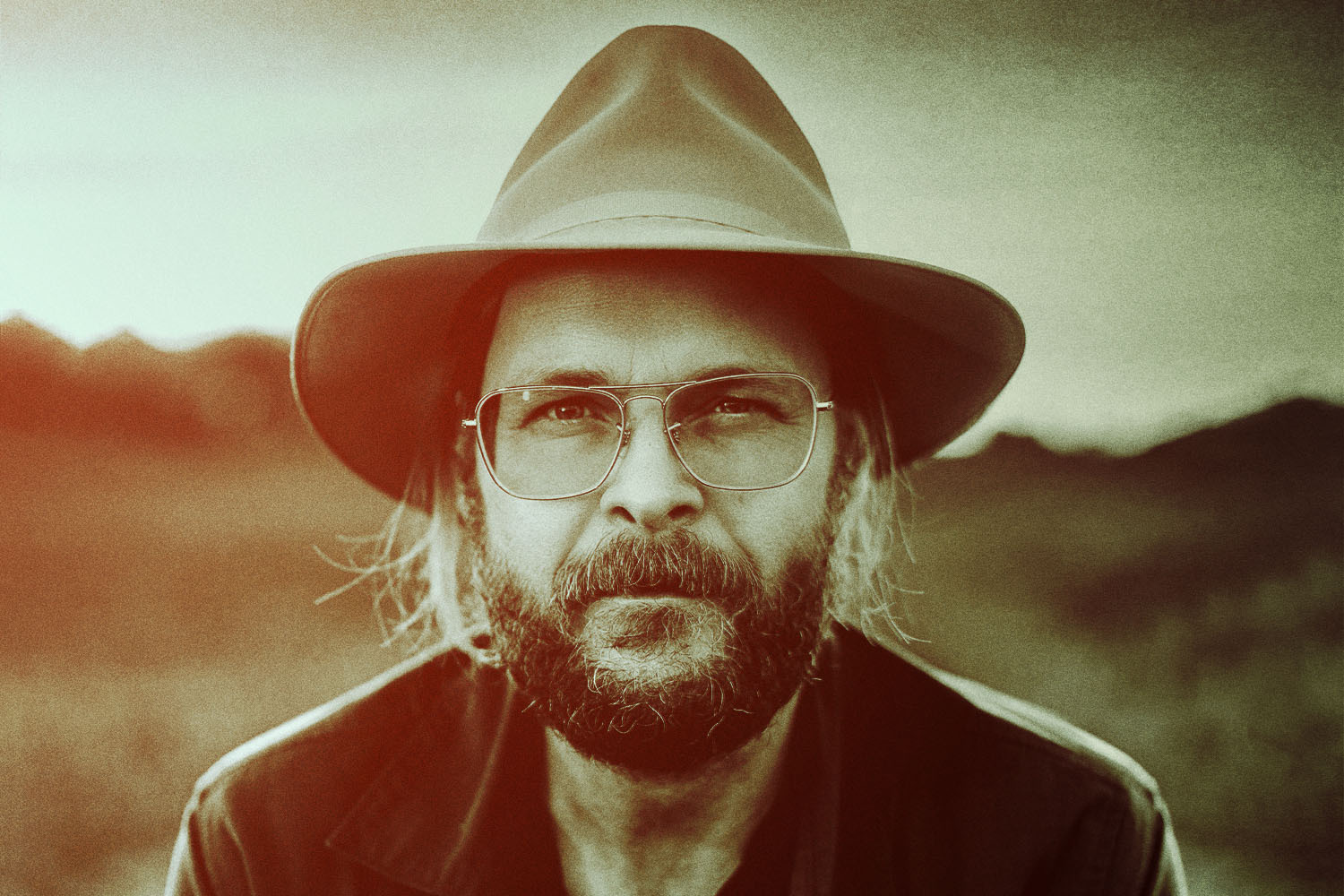We’re all coming off a pretty challenging year and a half, to say the least. But the rough patch for Shannon Shaw, frontwoman for the psychedelic surf-rock group Shannon & The Clams, started long before any of us had even heard of COVID-19.
In 2019, she found herself being stalked by a Peeping Tom who lurked around her Oakland apartment complex, eventually forcing her to move out of the space she’d called home for the past 14 years. That same year, her father was diagnosed with cancer. All the while, California was essentially on fire, with the raging wildfires in the state serving as an apocalyptic backdrop to all of the chaos that had already been thrust upon her. But through it all, she never stopped writing, and many of the songs she crafted as a way of coping and searching for catharsis during this period wound up on Year of the Spider, the group’s sixth studio album (out Friday via Easy Eye Sound).
“Melodies come to me when I’m really stressed out and I’m alone and doing something monotonous like driving or swimming or something,” Shaw explains. “Things come to me, and I do think it’s kind of a subconscious way to keep my mind healthy. And then when more conscious things start coming to the forefront, like lyrics, then I start to think of it in like the context of, ‘Oh, maybe this could be a song on a new Clams record,’ but always initially that as like a cathartic survival kind of thing for me.”
The band reunited with The Black Keys’ Dan Auerbach (who produced their 2018 album Onion as well as Year of the Spider) at his Nashville studio, completing the new record just before more disaster struck — the Tennessee city was hit by a devastating tornado, and then COVID-19 brought the world to a halt. Pretty soon, the collection of songs about facing adversity and finding strength and optimism in trying times felt eerily prescient. As we all begin to slowly but surely inch closer to some form of normalcy in the face of trauma, Year of the Spider is exactly what we need.
“It feels like the right time,” Shaw says. “It’s weird, as much as the record was written before the pandemic. So it was kind of like songs that ended up — they really meant something to me at the time, but they ended up making way more sense after the pandemic began. And I felt like it was kind of telling the future or something.”
Like all of us, Shaw spent her 2020 in lockdown, but her 2019 was far more nomadic, as she bounced between Oakland, Napa, Portland and Hawaii, writing snippets of songs all the while. Some tracks were crafted in multiple states, and the singer says that the spirit of each locale wound up unintentionally seeping its way into the music, as on the cinematic album opener “Do I Wanna Stay,” where she winds up belting over ornate instrumentation like Brenda Lee on acid.
“A lot of parts that ended up being like really lush and sweet and more beautiful, those were written in Maui,” she says. “And it’s not conscious. I think it’s just a reflection of how I’m feeling, like on ‘Do I Wanna Stay’ [on the chorus], that part I wrote in Maui. I feel that every time I listen to that song. I’m like, ‘Oh, yeah, I feel those waves rushing over me.’ Like it’s like really visceral.”
The ocean and the aquatic life within it also wound up serving as a major inspiration on “Godstone,” a bouncy, organ-driven standout track. Shaw penned it after a being deeply moved by an underwater encounter on a snorkeling trip.
“That was like one of the trippiest experiences I’ve ever had in my life,” she recalls. “And I was completely sober, snorkeling in the waves in Maui, and I’d never been there before. And the water is probably where I feel the most like myself, especially like sinking to the bottom of a pool or having my head underwater and the way sound changes underwater, that feeling in my ears I love. Anyways, so I’m snorkeling, and I’m already like in my groove where I feel like myself and I’m underwater, cruisin’. And I see a sea turtle, which I think a lot of people, maybe a sea turtle is old hat. Not me. I’d never seen one before. It totally blew my mind. And it just like slowly floated past me. And it was like a psychedelic experience just to feel like this big dinosaur or this big, like floating boulder that’s passing by me like I’m nothing. I loved it. I loved that feeling. And then I followed this sea turtle. It was pretty slow, which was great. So I just swam behind it for like 30 minutes, just following this guy, and it just was just a humbling, beautiful experience.”
After that, she says, she became “obsessed” with snorkeling, returning to the water frequently to check out some especially fascinating chunks of coral — until one day when she was interrupted by a massive noise she had never heard before.
“I heard this really extremely bizarre scream underwater,” she says. “And I immediately put my head up and looked around, and I didn’t see anything. And I put my head back under, and I heard it again, and I could feel it in all of the water. I could feel the water vibrating all over my body and through me. And I put my head up again, and I looked at shore, and there was like a ton of people clustered. It felt like they were staring at me, so I freaked out and I came in and they said that there were whales right next to me. Three whales right next to me, and I did not see them. But the scream I heard was like a whale song. And that just really gave me perspective on how insignificant I am in a good way. It just gave me like so much more respect for underwater world, which I know very little about. It felt really exciting to feel so small.”
Sometimes a look at the bigger picture — whether you’re taking a metaphorical step back to examine the grand scheme of things or literally being dwarfed by an enormous sea creature — can put things in perspective. Maybe, compared to the vastness of the universe, our trials and tribulations begin to feel more manageable. Perhaps that’s why ultimately, despite being rooted in such a dark period of Shaw’s life, Year of the Spider is an optimistic record. Towards the end of its tracklist, “Leaves Fall Again” is immediately followed by “Flowers Will Return” — a reminder that life is cyclical and most bleak moments eventually give way to happier patches if we’re patient.
“I think it’s a little bit of everything where to survive I feel like I have to some positive things in my horizon, whether it’s like a show coming up where I get to see my family in a couple of weeks, or I’m telling myself that something good is going to happen,” Shaw says. “That’s an important thing for my happiness and my mental health. And so I think sometimes it’s just like a natural way that I talk or communicate is to try and remind myself that things even themselves out or that something good is coming. But I think that that also did happen. Actually, it didn’t happen when we were writing the album. It didn’t happen until later. I felt like the songs we wrote kind of prophesied what ended up happening to all of us in 2020 in this like weirdly magical way.”
What ended up happening in 2020 was, of course, tragic. But Shaw emphasizes the silver lining to the ordeal — a rare moment in time in which everyone in the world was dealing with a similar, shared experience. We were all stuck in isolation, but because we were going through it together, none of us were really alone.
“I know that I went through a lot in the last couple of years,” she says. “Everyone has. Everyone has. Even if like, say you didn’t lose your job, say you didn’t have a Peeping Tom, but say everything was kind of normal. Almost everyone would feel super isolated and suffered in a lot of ways. And I guess I feel like this is the first time since I’ve been alive that everyone on Earth I think has gone through something insane all together. So I feel like it’s… I would hope people would feel connected through it. Like, ‘Oh my gosh, we made it. We got through this thing.’ Does that make sense at all?”
It does, and ultimately, it’s why we can all find something to latch onto on Year of the Spider. We may not be fully out of the woods yet, but we’ve got a nice reminder in it that all things must pass — and until they do, we can commiserate.
This article was featured in the InsideHook newsletter. Sign up now.





















